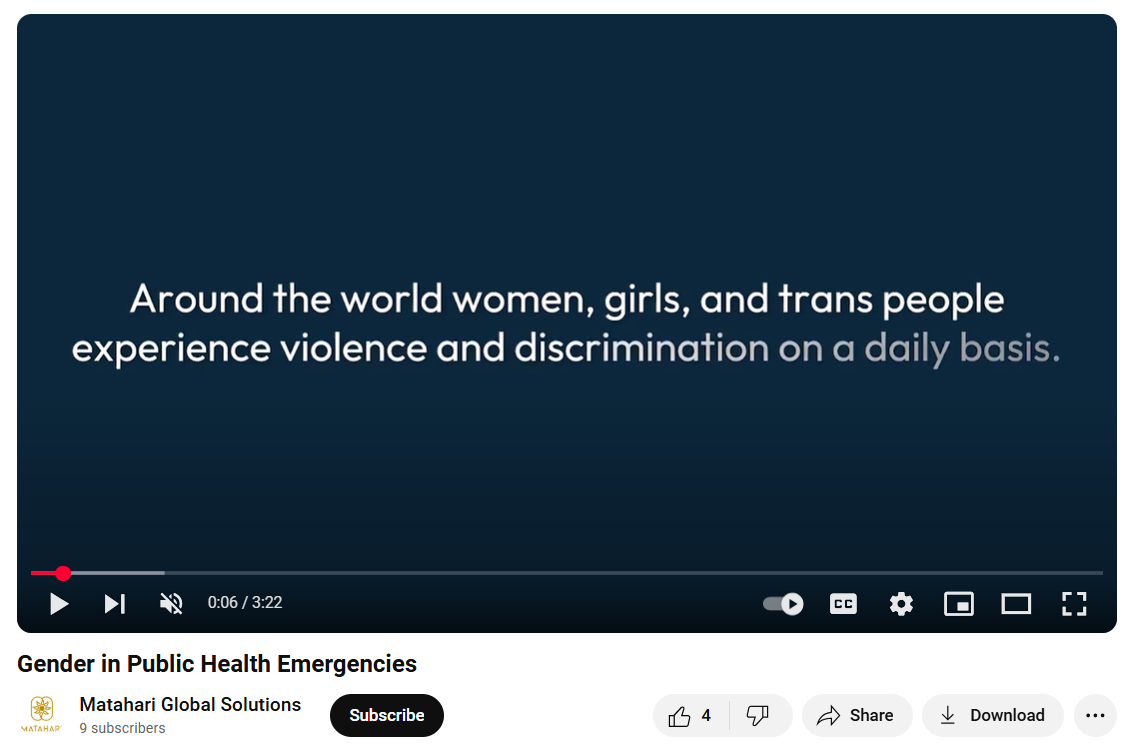Public health emergencies – such as pandemics and health crises arising out conflict, and emergencies rising out of the defunding of global health programmes – require a specific gender lens. Previous work highlights this, including Gavi’s gender checklist for vaccine deployment and Matahari’s COVID-19 and gender report.
With support from the Gender in Public Health Emergencies programme, Matahari Global engaged stakeholders, communities, and filmmakers in Malaysia and Nigeria to film their experiences accessing services during the COVID-19 pandemic and in South Sudan, as Sudanese refugees displaced due to the conflict in Sudan.
The film is available at this link, and illustrates how health facility refusal to use preferred names can deter trans people from accessing care, how women refugees from Sudan displaced from their homes were unable to obtain adequate healthcare in South Sudan, and how Nafisat Salisu, a community health worker from Abuja in Nigeria, had to spend out of pocket to purchase equipment to deliver babies when reproductive health services were interrupted during lockdown.
The film was launched at an event in Nairobi, where Nafisat Salisu and two Kenyan invitees spoke about the impact of gender on access to services. Catherine Menganyi, chapter lead of Women in Global Health Kenya, detailed increases in gender-based violence in Kenya during the COVID-19, and that in future pandemics, government must provide survivor-centred GBV care and safe spaces during crises. Additionally, Menganyi highlighted that personal protective equipment (PPE) was also designed for men, and did not take into account female bodies, despite 70% of healthcare workers being women, and that there was a need to ensure gender-appropriate PPE in future pandemics.
Ruele Okeyo, a Kenyan SRHR advocate, explained the unique challenges faced by LGBTQ+ people trying to access health services both during the COVID-19 pandemic and after, through routine health services, and said that among gender considerations needed would be the sensitisation of security guards at health facilities so they wouldn’t prevent access to LGBTQ people who were not “passing”, i.e. when a person is perceived as a member of a gender or sexual orientation group that they identify with. Nafisat Salisu stated that ensuring continuity of reproductive health services during crises was essential – and that CHWs needed to be adequately supported to delivering care, including in the purchasing of necessary equipment. There is some ways to go to ensure a gender lens is deployed in public health emergencies and government officials must be engaged more closely.





